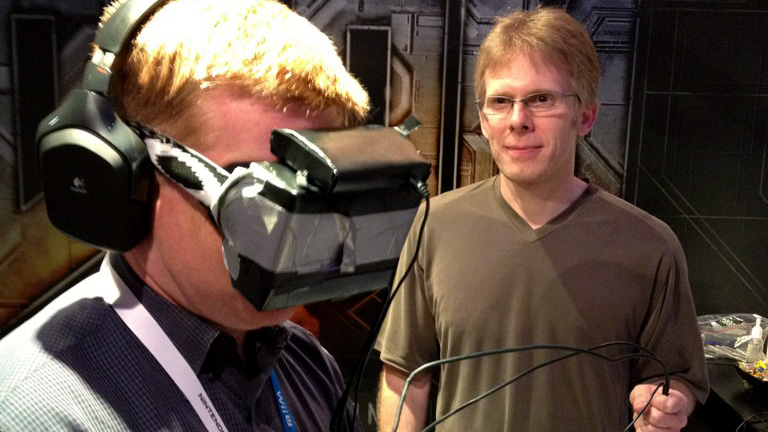[Update] Oculus has issued a formal statement in response to the allegations against John Carmack, saying, "We are disappointed but not surprised by Zenimax’s actions and we will prove that all of its claims are false."
The company went on to make the following points:
- There is not a line of Zenimax code or any of its technology in any Oculus products.
- John Carmack did not take any intellectual property from Zenimax.
- Zenimax has misstated the purposes and language of the Zenimax non-disclosure agreement that Palmer Luckey signed.
- A key reason that John permanently left Zenimax in August of 2013 was that Zenimax prevented John from working on VR, and stopped investing in VR games across the company.
- Zenimax canceled VR support for Doom 3 BFG when Oculus refused Zenimax’s demands for a non-dilutable equity stake in Oculus.
- Zenimax did not pursue claims against Oculus for IP or technology, Zenimax has never contributed any IP or technology to Oculus, and only after the Facebook deal was announced has Zenimax now made these claims through its lawyers.
- Despite the fact that the full source code for the Oculus SDK is available online (developer.oculusvr.com), Zenimax has never identified any ‘stolen’ code or technology.
[Original] John Carmack, the genius behind iconic franchises like Doom and Quake, is being accused by Zenimax for stealing IP from the company and bringing it with him when he left id Software to join forces with Oculus.
According to the Wall Street Journal, letters were sent to both Facebook and Oculus, alleging that Carmack "improperly took ZeniMax's intellectual property with him to Oculus," which "propelled Oculus from a shoestring startup to technology's big leagues in less than two years."
In response to these allegations, Oculus provided the following statement to NBC News:
It's unfortunate, but when there's this type of transaction, people come out of the woodwork with ridiculous and absurd claims. We intend to vigorously defend Oculus and its investors to the fullest extent.
It'll be interesting to see how this impending legal battle will affect the future of VR. Here's to hoping it proves to be nothing more than a minor speed bump.
Thanks, elmoreoocyte.











